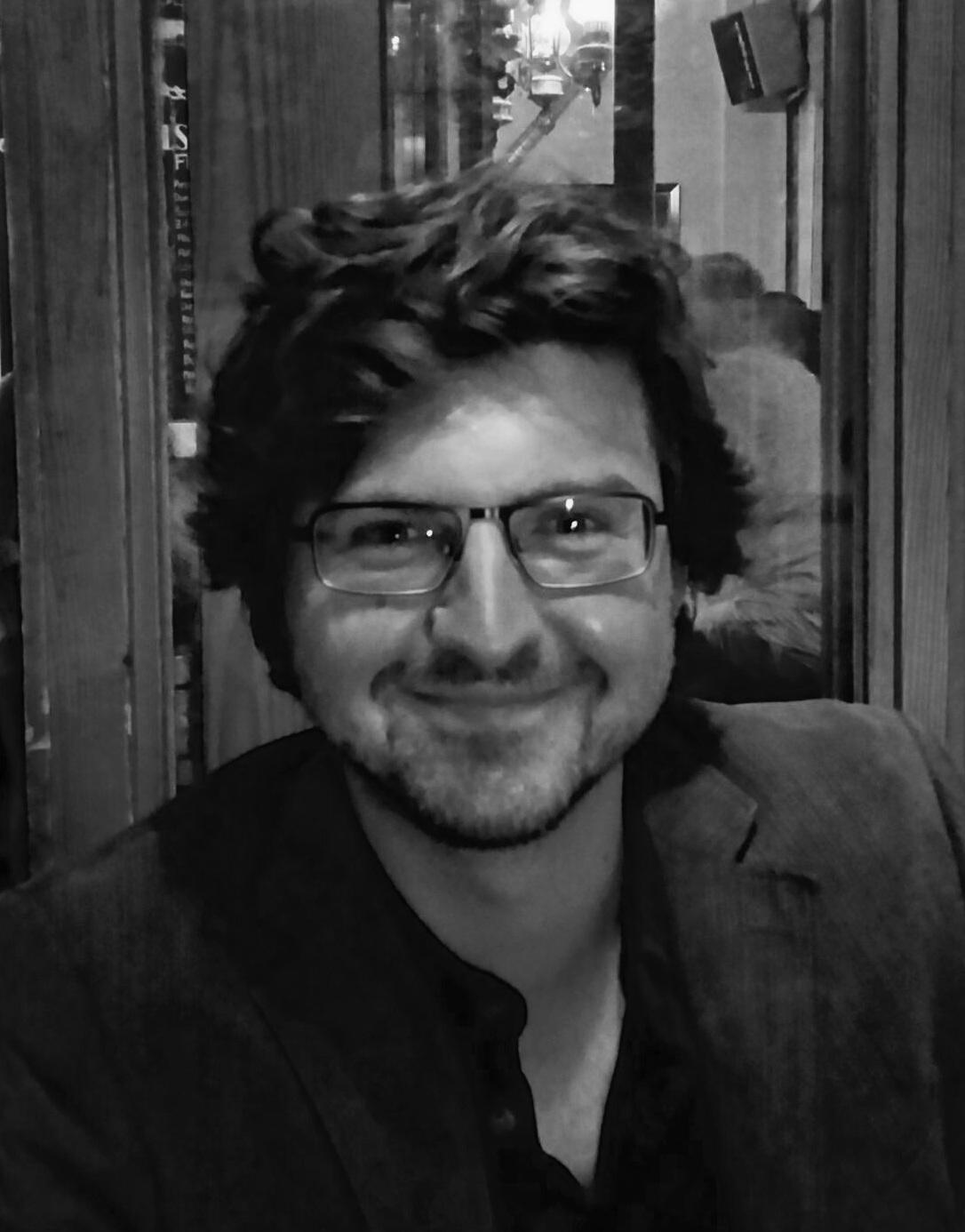Über uns
Die Redaktion des Distant Worlds Journal setzt sich aus Doktoranden der Graduate School "Distant Worlds" der LMU München zusammen. Sie forschen in verschiedenen Bereichen der Altertumswissenschaften.
Journal Coordinator
- Albert Dietz (dw-journal@mzaw.lmu.de)
Web Manager
- Christoph Fink (dw-journal@mzaw.lmu.de)
Thematic Issue Editors
- 1st Volume: Henry Albery, Polly Lohmann und Laurien Zurhake
- Special Issue: Armin Bergmeier, Katharina Palmberger und Joseph Sanzo
- 2nd Volume: Lauren Morris, Amanda Bledsoe und Fabian Heil
- Special Issue 2: Virginia Fabrizi
- 3rd Volume: Julia Preisigke, Aaltje Hidding und Albert Dietz
- 4th Volume: Hannelore Agnethler, Nina Gschwind und Anahita Mittertrainer
- 5th Volume: Daniel Fallmann, Fabian Heil und Gioele Zisa
Hannelore Agnethler
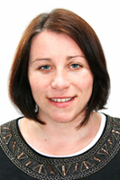
Hannelore Agnethler hat in Rumänien ein Studium der evangelischen Theologie absolviert. Von 2010 bis 2014 studierte sie im Rahmen des Bachelorstudiums 'Altorientalistik' an der LMU. Daraus erwuchs das Interesse sich in vertiefter Form mit der mesopotamischen Götterwelt zu befassen. Seit 2014 ist sie doctoral fellow bei 'Distant worlds' und behandelt in monographischer Form die Licht- und Feuergötter Nuska und Gibil-Girra.
Henry Albery
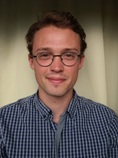 Henry Albery obtained his BA (hons) in the Study of Religions and a MA in Religions of Asia and Africa from the School of Oriental and African Studies (SOAS), University of London. He also studied Sanskrit at the University of Cambridge for a year and volunteered at the SOAS Summer School as a Buddhist Studies Teacher. Since April 2014 he has been a doctoral fellow at LMU, München. His research interests lie in the fields of Indology, Buddhist Studies and more widely, the Study of Religions. His doctoral thesis involves a socio-historical study of Indic Buddhism(s) by means of a comparative analysis of Buddhist epigraphic and literary sources from South and Central Asia.
Henry Albery obtained his BA (hons) in the Study of Religions and a MA in Religions of Asia and Africa from the School of Oriental and African Studies (SOAS), University of London. He also studied Sanskrit at the University of Cambridge for a year and volunteered at the SOAS Summer School as a Buddhist Studies Teacher. Since April 2014 he has been a doctoral fellow at LMU, München. His research interests lie in the fields of Indology, Buddhist Studies and more widely, the Study of Religions. His doctoral thesis involves a socio-historical study of Indic Buddhism(s) by means of a comparative analysis of Buddhist epigraphic and literary sources from South and Central Asia.
Beatrice Baragli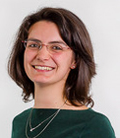 Beatrice Baragli studied ancient languages and cultures at the University of Florence. She wrote her BA thesis in Semitic Philology about the sumerograms in the Ebla archives, whereas her MA thesis focused on the Akkadian lexicon of some mental diseases. Now a doctoral fellow of Distant Worlds, Beatrice is currently working on the edition of the KI-dUTU prayers addressed to the Sun God Shamash. Beyond these topics, her research interests mainly concern ritual and medical texts.
Beatrice Baragli studied ancient languages and cultures at the University of Florence. She wrote her BA thesis in Semitic Philology about the sumerograms in the Ebla archives, whereas her MA thesis focused on the Akkadian lexicon of some mental diseases. Now a doctoral fellow of Distant Worlds, Beatrice is currently working on the edition of the KI-dUTU prayers addressed to the Sun God Shamash. Beyond these topics, her research interests mainly concern ritual and medical texts.
Amanda Bledsoe
 Amanda Davis Bledsoe is a doctoral fellow at the Faculty of Jewish Studies in Munich. She previously completed her Master of Theological Studies at Emory University in Atlanta and her undergraduate degree in Religion at Florida State University. She works in the fields of Second Temple Judaism and biblical studies. Her current research focuses on the Daniel fragments from the Dead Sea Scrolls and the earliest reception of the work.
Amanda Davis Bledsoe is a doctoral fellow at the Faculty of Jewish Studies in Munich. She previously completed her Master of Theological Studies at Emory University in Atlanta and her undergraduate degree in Religion at Florida State University. She works in the fields of Second Temple Judaism and biblical studies. Her current research focuses on the Daniel fragments from the Dead Sea Scrolls and the earliest reception of the work.
Albert Dietz
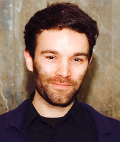 Albert Dietz obtained his Bachelor in Archaeology and his Master in Near Eastern Archaeology in Mainz. His MA thesis focused on the value of booty objects in the Ancient Near East. During his Master he spent one year as an Erasmus-student at the Université Paris 1 Panthéon-Sorbonne. He has been involved in various documentation and excavation campaigns in Syria, Iran, Iraqi-Kurdistan and Lebanon. As a doctoral follow of Distant Worlds, he started his PhD thesis on the iconography of Near Eastern Storm-gods.
Albert Dietz obtained his Bachelor in Archaeology and his Master in Near Eastern Archaeology in Mainz. His MA thesis focused on the value of booty objects in the Ancient Near East. During his Master he spent one year as an Erasmus-student at the Université Paris 1 Panthéon-Sorbonne. He has been involved in various documentation and excavation campaigns in Syria, Iran, Iraqi-Kurdistan and Lebanon. As a doctoral follow of Distant Worlds, he started his PhD thesis on the iconography of Near Eastern Storm-gods.
Daniel Fallmann
From 2009 till 2016 Daniel Fallmann studied Classics, Romance Studies and Archaeology of the Americas in Bonn, Valencia (Spain) and Freiburg. His major interests are ancient mythology and religion, ancient languages, as well as Historical anthropology. Since spring 2017 he is doctoral fellow at the graduate school ‘Distant Worlds’ in Munich. In his thesis he aims to study the Archaic and Classical Greek imaginations of the ‘edges of the world’ i.e. the remote regions of the world, as places between mythological, imaginative and scientific representation.
Christoph Fink
Christoph Fink is a doctoral fellow at the Graduate School Distant Worlds and in the Institut für Assyriologie und Hethitologie of the LMU Munich. He studied Archaeology and Assyriology at the LMU Munich. His current research focuses on the early bronze period citadel in Tall Bazi, Syria.
Zsombor Földi
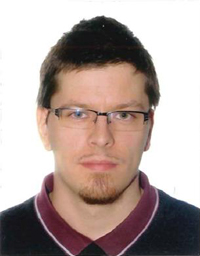 Zsombor Földi is a doctoral fellow at the Institut für Assyriologie und Hethitologie of the LMU Munich. He studied Assyriology and History at the ELTE University of Budapest, after which he spent one year at the Universität Leipzig. His main interests are the economic and social history of Old Babylonian period Mesopotamia. His current research focuses on the court procedure of that period, based on trial documents from the city of Larsa and its vicinity.
Zsombor Földi is a doctoral fellow at the Institut für Assyriologie und Hethitologie of the LMU Munich. He studied Assyriology and History at the ELTE University of Budapest, after which he spent one year at the Universität Leipzig. His main interests are the economic and social history of Old Babylonian period Mesopotamia. His current research focuses on the court procedure of that period, based on trial documents from the city of Larsa and its vicinity.
Nina Gschwind
 Nina Gschwind is a doctoral fellow at the Faculty of Protestant Theology at Ludwig-Maximilians-University and at the Graduate School Distant Worlds in Munich. She previously studies Protestant Theology in Tübingen, Jerusalem and Munich. She holds an M.Th. and an M.Div from Eberhard Karls University Tübingen. Her research interests are in the fields of Old Testament exegesis and wisdom literature in the Hebrew Bible and in the ancient Orient and Egypt. Her PhD thesis focuses on a comparison between the biblical book of Job and the Psalms, with the title: "The God of Job. Studies on the relationship of individuals with the divine in light of the prayer motifs in the Psalms".
Nina Gschwind is a doctoral fellow at the Faculty of Protestant Theology at Ludwig-Maximilians-University and at the Graduate School Distant Worlds in Munich. She previously studies Protestant Theology in Tübingen, Jerusalem and Munich. She holds an M.Th. and an M.Div from Eberhard Karls University Tübingen. Her research interests are in the fields of Old Testament exegesis and wisdom literature in the Hebrew Bible and in the ancient Orient and Egypt. Her PhD thesis focuses on a comparison between the biblical book of Job and the Psalms, with the title: "The God of Job. Studies on the relationship of individuals with the divine in light of the prayer motifs in the Psalms".
Fabian Heil
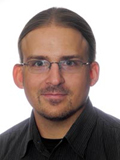 Fabian Heil studied Prehistoric Archaeology, Near Eastern Archaeology and Classical Archaeology at the University of Heidelberg and was afterwards temporarily employed as a substitute teacher for surveying in the Department of Prehistory. He has been involved in various excavations in Germany, Austria, Hungary and Greece. His main research interests include the Bronze and Iron Age in central and southern Europe, but especially the Aegean Bronze Age and Cypriot Archaeology. After having been accepted as a doctoral follow of Distant Worlds, he started his PhD thesis on the prehistory of Cyprus and adaption mechanisms embedded in rituals.
Fabian Heil studied Prehistoric Archaeology, Near Eastern Archaeology and Classical Archaeology at the University of Heidelberg and was afterwards temporarily employed as a substitute teacher for surveying in the Department of Prehistory. He has been involved in various excavations in Germany, Austria, Hungary and Greece. His main research interests include the Bronze and Iron Age in central and southern Europe, but especially the Aegean Bronze Age and Cypriot Archaeology. After having been accepted as a doctoral follow of Distant Worlds, he started his PhD thesis on the prehistory of Cyprus and adaption mechanisms embedded in rituals.
Aaltje Hidding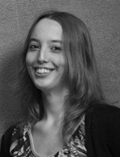 Aaltje Hidding concluded a Bachelor in Classics and a Master in Classical, Medieval, and Renaissance Studies at the University of Groningen, having also studied at the University of Lund and at the Royal Holloway University of London. Her fields of interest include Greek and Coptic papyrology and hagiography, Christianity in Late Antique Egypt, and Late Antique history and historiography. Her current research project at the LMU Munich is „The Era of the Martyrs: Remembering the Great Persecution in Late Antique Egypt”.
Aaltje Hidding concluded a Bachelor in Classics and a Master in Classical, Medieval, and Renaissance Studies at the University of Groningen, having also studied at the University of Lund and at the Royal Holloway University of London. Her fields of interest include Greek and Coptic papyrology and hagiography, Christianity in Late Antique Egypt, and Late Antique history and historiography. Her current research project at the LMU Munich is „The Era of the Martyrs: Remembering the Great Persecution in Late Antique Egypt”.
Polly Lohmann
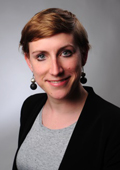 Polly Lohmann hat Klassische Archäologie, Alte Geschichte und Lateinische Philologie in Heidelberg und Rom studiert und an verschiedenen Grabungsprojekten in der Türkei, im Kosovo und in Italien teilgenommen. Sie promoviert seit 2013 an der LMU über pompejanische Graffiti und hat in diesem Rahmen ein Forschungssemester an der University of Cambridge verbracht. Zu ihren Themenschwerpunkten gehören Wohnforschung und Architektursoziologie, Rollenbilder und Sozialgeschichte. Sie ist auch außerakademisch publizistisch tätig, z.B. als Reisebloggerin und Gastkolumnistin bei Focus-online.
Polly Lohmann hat Klassische Archäologie, Alte Geschichte und Lateinische Philologie in Heidelberg und Rom studiert und an verschiedenen Grabungsprojekten in der Türkei, im Kosovo und in Italien teilgenommen. Sie promoviert seit 2013 an der LMU über pompejanische Graffiti und hat in diesem Rahmen ein Forschungssemester an der University of Cambridge verbracht. Zu ihren Themenschwerpunkten gehören Wohnforschung und Architektursoziologie, Rollenbilder und Sozialgeschichte. Sie ist auch außerakademisch publizistisch tätig, z.B. als Reisebloggerin und Gastkolumnistin bei Focus-online.
Anahita Mittertrainer
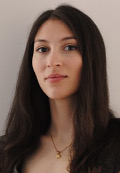 Anahita Mittertrainer is a doctoral fellow at LMU, Munich. She completed her MA in Near Eastern Archaeology at the Free University Berlin and the Boğaziçi University Istanbul (Erasmus) and obtained her BA in Archaeology from LMU Munich. She works in the fields of Late Antiquity and has undertaken fieldwork in Germany, Armenia, Saudi Arabia, Georgia, Iran and Usbekistan. Her current research focuses on the Sasanian cities in southwest Iran.
Anahita Mittertrainer is a doctoral fellow at LMU, Munich. She completed her MA in Near Eastern Archaeology at the Free University Berlin and the Boğaziçi University Istanbul (Erasmus) and obtained her BA in Archaeology from LMU Munich. She works in the fields of Late Antiquity and has undertaken fieldwork in Germany, Armenia, Saudi Arabia, Georgia, Iran and Usbekistan. Her current research focuses on the Sasanian cities in southwest Iran.
Lauren Morris
 Lauren Morris holds a B.A. (Hons) from the University of Sydney, and is a doctoral fellow in Classical Archaeology at the LMU Munich. Through the cache of imported commodities found at Begram (Afghanistan), her dissertation examines receptions of the Mediterranean world in Central Asia after the collapse of Greek rule. Lauren's research interests include cross-cultural interaction, reception studies, the politics of archaeology, and the illicit trade in antiquities. She has also undertaken fieldwork in Cyprus, Spain, and Kazakhstan.
Lauren Morris holds a B.A. (Hons) from the University of Sydney, and is a doctoral fellow in Classical Archaeology at the LMU Munich. Through the cache of imported commodities found at Begram (Afghanistan), her dissertation examines receptions of the Mediterranean world in Central Asia after the collapse of Greek rule. Lauren's research interests include cross-cultural interaction, reception studies, the politics of archaeology, and the illicit trade in antiquities. She has also undertaken fieldwork in Cyprus, Spain, and Kazakhstan.
Julia Preisigke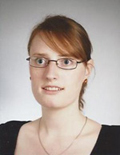 Julia Dorothea Preisigke studied Archaeology and Cultural History of Northeast Africa at Humboldt University Berlin, before she came to Munich for her PhD. She has worked for the Musawwarat Graffiti Project, since 2008 she has been involved in ongoing excavations for the project “Cult of Osiris” of the German Archaeological Institute Cairo at Abydos/Umm el-Qaab in Egypt and for the ERC/FWF project at Sai-Island in Sudan. Julia’s PhD focuses on counter temples and other spaces at and within temples, in which people were able to communicate with the respective god.
Julia Dorothea Preisigke studied Archaeology and Cultural History of Northeast Africa at Humboldt University Berlin, before she came to Munich for her PhD. She has worked for the Musawwarat Graffiti Project, since 2008 she has been involved in ongoing excavations for the project “Cult of Osiris” of the German Archaeological Institute Cairo at Abydos/Umm el-Qaab in Egypt and for the ERC/FWF project at Sai-Island in Sudan. Julia’s PhD focuses on counter temples and other spaces at and within temples, in which people were able to communicate with the respective god.
Cagla Umsu
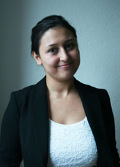 Cagla Umsu studied sociology and classical philology in Istanbul and Berlin. She received her M.A. at the Humboldt-Universität zu Berlin with a thesis on dreams in Iamblichus' De Mysteriis. Since November 2015 she is a doctoral fellow of the Graduate School Distant Worlds in Munich. Her research focuses on Later Platonism, especially on the construction of the "self" and social ethics in Late Antiquity.
Cagla Umsu studied sociology and classical philology in Istanbul and Berlin. She received her M.A. at the Humboldt-Universität zu Berlin with a thesis on dreams in Iamblichus' De Mysteriis. Since November 2015 she is a doctoral fellow of the Graduate School Distant Worlds in Munich. Her research focuses on Later Platonism, especially on the construction of the "self" and social ethics in Late Antiquity.
Zsuzsanna Végh
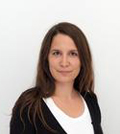 Zsuzsanna Végh ist Promotionstudentin der Ägyptologie. Sie hat in Budapest studiert und als DAAD-Stipendiatin in Heidelberg mit ihrer Promotion angefangen, bevor sie nach 2013 München wechselte. Ihre Forschungsinteressen sind Funerärliteratur (v.a. der Übergang vom Sargtexte zum Totenbuch), ägyptische Festivals (v.a. das abydenische Osiris-Festival) und die soziale Struktur des Mittleren Reiches. Sie hat auf Grabungen in Luxor (Ägypten) mitgearbeitet und ein Forschungssemester in Oxford verbracht.
Zsuzsanna Végh ist Promotionstudentin der Ägyptologie. Sie hat in Budapest studiert und als DAAD-Stipendiatin in Heidelberg mit ihrer Promotion angefangen, bevor sie nach 2013 München wechselte. Ihre Forschungsinteressen sind Funerärliteratur (v.a. der Übergang vom Sargtexte zum Totenbuch), ägyptische Festivals (v.a. das abydenische Osiris-Festival) und die soziale Struktur des Mittleren Reiches. Sie hat auf Grabungen in Luxor (Ägypten) mitgearbeitet und ein Forschungssemester in Oxford verbracht.
Christopher Waß
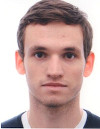 Christopher Waß hat Ägyptologie, Klassische Archäologie und Assyriologie in München studiert. Seit April 2015 arbeitet er als doctoral fellow an einem Promotionsvorhaben, das sich mit der Verwendung von ägyptischen Kursivschriften in magischen Texten der späten Römerzeit aus Ägypten beschäftigt. Seine Forschungsinteressen sind Sprach- und Schriftgeschichte des Ägyptischen, Magie in der Antike sowie das griechisch-römische Ägypten. Seit 2009 ist er am Grabungsprojekt der Universitäten Cairo und München in Tuna el-Gebel (Mittelägypten) beteiligt.
Christopher Waß hat Ägyptologie, Klassische Archäologie und Assyriologie in München studiert. Seit April 2015 arbeitet er als doctoral fellow an einem Promotionsvorhaben, das sich mit der Verwendung von ägyptischen Kursivschriften in magischen Texten der späten Römerzeit aus Ägypten beschäftigt. Seine Forschungsinteressen sind Sprach- und Schriftgeschichte des Ägyptischen, Magie in der Antike sowie das griechisch-römische Ägypten. Seit 2009 ist er am Grabungsprojekt der Universitäten Cairo und München in Tuna el-Gebel (Mittelägypten) beteiligt.
Gioele Zisa
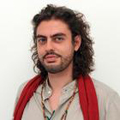 Gioele Zisa obtained his BA in Ethnolgy and Cultural Anthropology at the University of Palermo and pursued an MA in Archaeological and Historical Sciences with a specialization in Assyriology at the Università La Sapienza in Rome. His PhD thesis at the LMU Munich focuses on the meaning of male sexual impotence in ancient Mesopotamia. Gioele is also interested in Migration Processes, Intercultural Education, Medical Anthropology and Folklore, and he has carried out anthropological fieldwork in Sicily, France, Israel and Morocco.
Gioele Zisa obtained his BA in Ethnolgy and Cultural Anthropology at the University of Palermo and pursued an MA in Archaeological and Historical Sciences with a specialization in Assyriology at the Università La Sapienza in Rome. His PhD thesis at the LMU Munich focuses on the meaning of male sexual impotence in ancient Mesopotamia. Gioele is also interested in Migration Processes, Intercultural Education, Medical Anthropology and Folklore, and he has carried out anthropological fieldwork in Sicily, France, Israel and Morocco.
Laurien Zurhake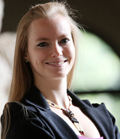 Laurien Zurhake studied history, focusing on Classical Antiquity, at the Radboud University Nijmegen and the University of Oxford. During her studies she also spent several months in Rome excavating at the 5th Mile of the Via Appia Antica. After having finished the two-year Research Master with a thesis about the popularity of physically deformed slaves during Roman Imperial times, she obtained a doctoral position at the LMU Munich. At present, Laurien conducts research about the Reception, Experience and Expression of Pain in Graeco-Roman Times.
Laurien Zurhake studied history, focusing on Classical Antiquity, at the Radboud University Nijmegen and the University of Oxford. During her studies she also spent several months in Rome excavating at the 5th Mile of the Via Appia Antica. After having finished the two-year Research Master with a thesis about the popularity of physically deformed slaves during Roman Imperial times, she obtained a doctoral position at the LMU Munich. At present, Laurien conducts research about the Reception, Experience and Expression of Pain in Graeco-Roman Times.

